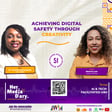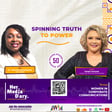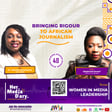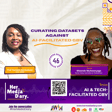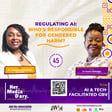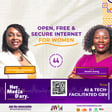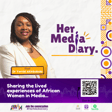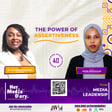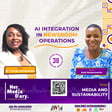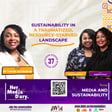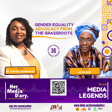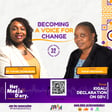
Her Media Diary Episode 33: “Making the Difference” with Mwape Kumwenda
Mwape Kumwenda is an accomplished journalist and co-founder of Crown TV, Zambia with over 1o years of experience. She shares her experience growing up in Kabwe, Zambia where she witnessed firsthand the vulnerabilities faced by women and girls in her community. This early exposure to gender-based violence fueled her passion for justice, initially leading her to aspire to become a lawyer. However, circumstances led her to journalism, where she found a powerful platform to amplify the voices of the voiceless.
Mwape’s story speaks to the need for women in media to rise to the top of their careers to ensure adequate representation and ultimately reduce gender-based violence in and through the media.
Subscribe to Her Media Diary now on your favourite podcasting platform https://linktr.ee/hermediadiary
Learn about African Women in Media at https://africanwomeninmedia.com
List of Organisations/Resources to Support Women in Media
· International Women’s Media Foundation (IWMF)
· African Women in Media (AWiM)
· Public Media Women in Leadership
· International Journalists’ Network (IJNet)
· Kigali Declaration on the Elimination of Gender Violence
· Media Career Development Network
